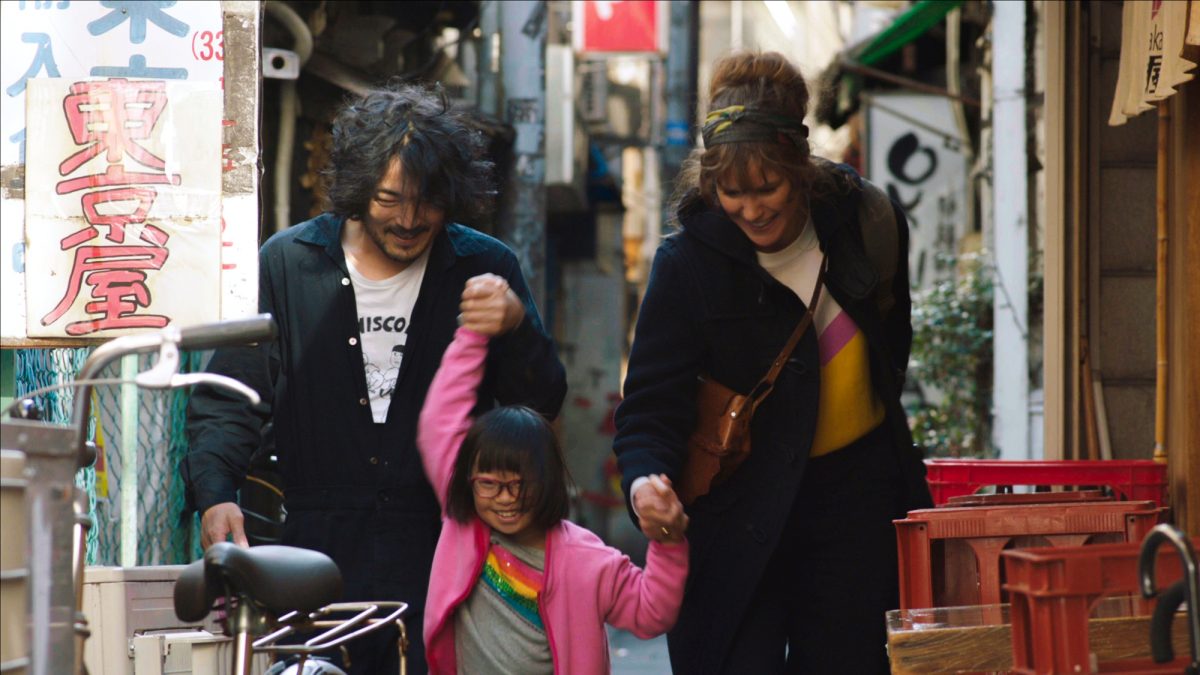If two people who lack a common language want to communicate, they’ll find a way to communicate. The characters in “blood,” the first new film from Bradley Rust Gray in a decade, don’t exactly lack a common language, but coltish English and crummy Japanese necessitate auxiliary tools for communication, such as food, dance, music, flowers, and art. There may be no purer way for people to bond than preparing a meal together, for instance, no matter where they come from, what tongue they speak, what culture they call their own. Our shared customs help us bridge the gaps in our differences. It’s how we make friends with people from places other than the ones we call home. The transactional harmony so tenderly dramatized in “blood” (stylized in lowercase for reasons that remain unclear even after the credits roll) teaches Gray’s audience valuable lessons in empathy. What’s left somewhat cloudier is instruction on how to allow oneself to participate in said harmony when grief shapes your worldview, and this is where Gray finds his drama.
Recently widowed Chloe (Carla Juri) travels to Japan for work and to escape the anguish of losing her husband. While there, she reunites with Toshi (Takeshi Ueno), her old chum, a touring musician and single dad to his winsome daughter, Futaba (Futaba Okazaki), and makes acquaintances with Toshi’s grandmother (Sachiko Ohshima), her translator, Yatsuro (Issey Ogata), and dance choreographer Chieko (Chieko Ito). But what starts out as “work” blossoms into an opportunity for amour, at least as far as Toshi’s concerned. He loves Chloe. Chloe doesn’t not love him, but she doesn’t think of him in that way. She doesn’t think of anything in that way, really, what with having her husband’s ghost and an unreasonable amount of shame on her mind at all times. Toshi’s a friend. Chloe can’t easily bring herself to explore feelings for other people, riddled by insecurity and guilt as she is, so Toshi quietly pines for her while she struggles through her grief.
READ MORE: Sundance 2022 Preview: 20 Must-See Movies From The Festival
This sounds far sappier on paper than it actually plays out on screen. Gray structures “blood” as episodic and meandering; the film has no place in particular to go, and Gray is in no hurry to get there. His primary concern is with Chloe’s attempts at figuring out who she is as a woman made single by the most awful circumstance, and with letting the people in his film simply be people. Appropriately enough given Chloe’s line of work, “blood” embraces an observational style; Gray’s cinematographer, Eric Lin, hovers at a distance for most of the picture, capturing Chloe, Toshi, and subsidiary characters at what feels like an emotional distance. This presents “blood” with a problem—how are we to invest in these folks if we can’t get close to them?
Lin’s selection of long shots reflects a divide between Gray’s protagonists, which must be contextualized specifically as a divide between Chloe and nearly every other character she meets. Maybe “blood” could reflect the (admittedly thin) walls Chloe has put around herself without routinely shooting from 30 feet away? Conversely, a movie can express intimacy without getting in its cast members’ faces, and this is what “blood” manages to do as those walls slowly come down. Gray doesn’t appear to accept the impossibility of starting over later in life, when the person whom you’ve bonded your life to passes away and the interior world you built for one another is suddenly populated by you alone; he’s an optimist and a romantic. Gray’s a realist, too, and his realism grounds his romanticism and his optimism in ways that keep “blood” from floating over the audience’s heads.
But realism is a double-edged sword. “blood” would not benefit from flights of fancy, but it could have benefitted from time. Realism is a patient aesthetic. Life unfolds in its own ways, on its own terms, for its own reasons. Gray understands as much and is content to let “blood” pleasantly roam from vignette to vignette, creating warmth every step of the way even if the way is somewhat obscured. But “blood,” the sober, stripped-down cousin of movies like “Lost in Translation,” doesn’t afford itself the right amount of time for Chloe and Toshi to find their way to each other, spiritually speaking. The film is many things. One thing it certainly isn’t is rushed. At the same time “blood” is so determinedly observational that when Toshi and Chloe inevitably do connect on a deeper level, their connection reads as abrupt.
Still, Juri and Ueno share immense chemistry. Juri’s a well-established actress with a gift for masking her characters’ feelings; Ueno is a non-professional actor with a natural charm that lets him keep pace with Juri. They’re a well-matched duo. Toshi smiles even when he isn’t smiling. Chloe mourns even when she smiles. The affection that blossoms between them is isolated to small gestures— a laugh here, a hand or a head resting on a shoulder there. There’s no need for grand, passionate flourishes in “blood.” Gray and his leads ably demonstrate how quotidian encounters and minute actions speak volumes. What’s missing is space for those little details to fully speak. [C+]
Follow along with all our coverage of the 2022 Sundance Film Festival.





